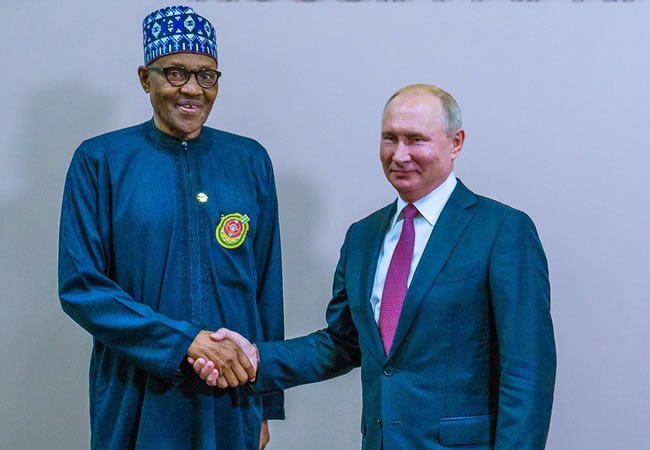There are no products in your shopping cart.
| 0 Items | £0.00 |


INTERNATIONAL Monetary Fund (IMF) officials have warned Nigeria and other African countries of the possibility of hunger-related social unrests ahead as a direct consequence of Russia-Ukraine war
According to the IMF, the Russia-Ukraine war will lead to global shortages of certain basic foodstuffs, which will have a social impact on developing nations. This prediction was contained in the IMF's Sub-Saharan Africa Regional Economic Outlook, which was released in Washington DC yesterday.
At the moment, Africa depends on Russia and Ukraine for about 50% of its wheat imports and this supply had been disrupted by the war. Abebe Selassie, the director of the IMF's African Department, said that the Russian invasion of Ukraine has adversely affected the entire global economy, with commodity prices raising inflation trends across the world.
Mr Selassie added: “Food price increases will hurt the most vulnerable and may add to social tensions, particularly in fragile and conflict-affected states. Food security is already a critical issue across the Sahel
“Finally, this is a crisis on top of another crisis, of course, one which threatens to compound some of the region’s most pressing policy challenges, including the pandemics social and economic legacy, heightened security risks, particularly in the Sahel countries and tightening monetary policy conditions in advanced economies, in response to rising global inflation. The commodity price shock following the Russian invasion of Ukraine has stalled the positive momentum in the region’s economic recovery, with aggregate growth for 2022 expected to soften to 3.8%.”
He noted that African policy makers faced challenges of high inflation, rising debt, as well as hunger-related social unrests and must act fast to address them, with little room for manoeuvre. Mr Selassie said that at the start of 2022, it looked like sub-Sahara African countries were beginning to recover from the very difficult economic conditions they had encountered in 2020 and 2021 but unfortunately, most countries in the region are facing a major setback.
Sub-Saharan Africa now faces the highest inflation since 2008, with very high food prices and increased food security concerns across the continent which would hurt all segments of the population.